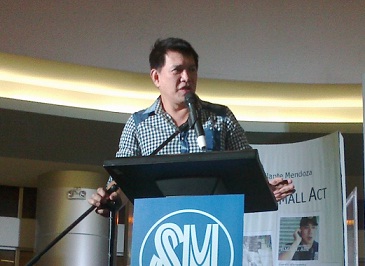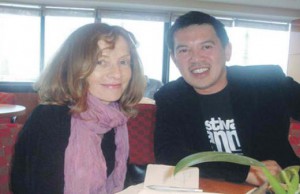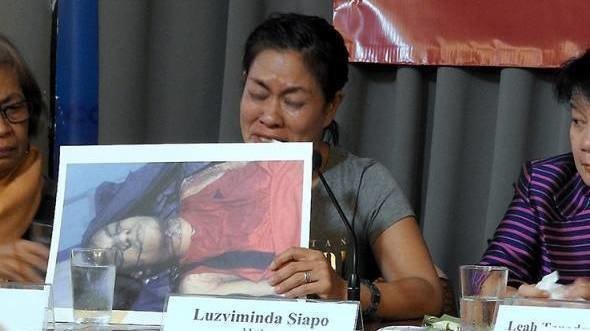By REYNARD MAGTOTO
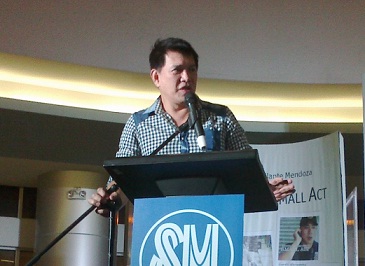
“I make movies because I have a story to tell and I have a story to share,” multi-awarded filmmaker Brillante Mendoza declared.
Mendoza’s four-part documentary series, titled “Small Acts, Big Stories,” was inspired by the stories of ordinary people who wanted to make a difference through their extraordinary acts.
His documentary (docu) series, screened recently at SM Naga, began when Solar News Channel launched its “One Small Act Campaign” through a photo contest in June 2012 in time for the country’s 114th Independence Day. The event gathered hundreds of photo entries, which told inspirational stories of ordinary Filipinos making a difference through their small acts.
To help awaken the spirit of nationalism in every Filipino, Mendoza explored the bigger stories presenting the real life scenes of the people behind the photo entries. He was not after the quality of the photographs but the interesting stories behind them.
For example, Mendoza chose a photograph of a fireman rescuing a cat in a building for one of his 30-minute documentaries. Lords Hernandez is the fireman who saves animals during fires and hazardous situations as his advocacy.
“The quality of the photo is not good but [what is inspiring is] the idea behind why he needs to rescue the cat when in fact, he can save the people and their properties,” he said.
Another episode in Mendoza’s docu series features Joon Baltazar—a person with disability (PWD) and a member of LifeHeaven Inc. Foundation. His “small act” of performing in the streets and educating people with the same plight shows that despite their disabilities, they can still inspire society.
Einstein Azarcon, a first-year college student at Central Bicol State University of Agriculture (CBSUA), admitted that he used to discriminate against PWDs.
“At first I was bored (by the docu)…For me, they are nonsense… but I was wrong because I was awakened by the reality,” according to Azarcon, who found himself crying after watching the film.
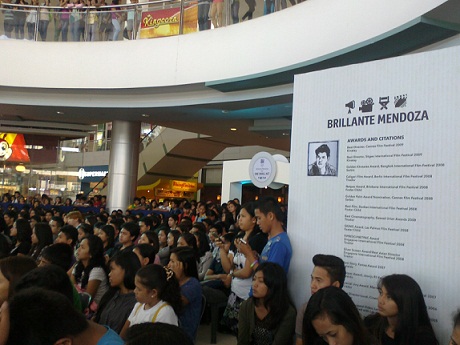
Azarcon said he realized that these people are also important even though they have disabilities, they have the right to live and to showcase their talents.
On Mendoza’s indie film, he had this to say: “It will really awaken our minds on the different faces of life.”
“If you analyze the story [you find] it has an advocacy, it has something to tell,” Mendoza explained.
He said, “Small Acts, Big Stories” is an eye-opener because it shows that you don’t need to do big things to have an advocacy, but just to do something for your country or to other people no matter how small “as long as you do it by heart.”
His docu series also features Crisanto Gumilac, an artist who sells his paintings at affordable prices; and Michael Quiamba, a karetela driver who offers free rides to children and senior citizens.
Despite the project’s small budget of P150,000 provided by Solar News, Mendoza was able to finish his documentary series. “Considering that they (Solar News) are a small network that [small act of providing funds] is one thing admirable… [even though] P150,000 is not enough,” he added.
Mendoza, who once made a documentary about indigenous people in Palawan titled “Tao’t Bato,” said that the budget of major networks, like GMA or ABS-CBN, for a docu is about P80, 000.
The “Small Acts Big Stories” is a kind of character-driven film that is made with a very small budget outside the traditional studio system.
Alternative cinema films are about original creative storytelling by independent filmmakers who are not afraid to take risks when they tell stories. One such filmmaker is Mendoza, who has brought a lot of attention to the independent film industry in the country.
He lamented that support for alternative cinema had never been a priority of the government, including the present administration.
Mendoza observed that most Filipinos are fond of watching telenovelas, comedy, action, horror and anime.
“There’s nothing wrong if we can laugh inside the cinema, be happy or be scared, that’s part of our entertainment industry,” he said. “But it’s not only like that; there’s a lot more we (filmmakers) can do in the film.”
According to Mendoza, alternative film should be promoted to open the minds of the youth and help them appreciate Philippine culture and other aspects of life.
This year, Mendoza is set to create a documentary about protected areas all over the Philippines.
“We don’t know how blessed we are with natural resources,” he explained. “Maybe we need to remind the Filipinos that we need to protect our natural resources.
